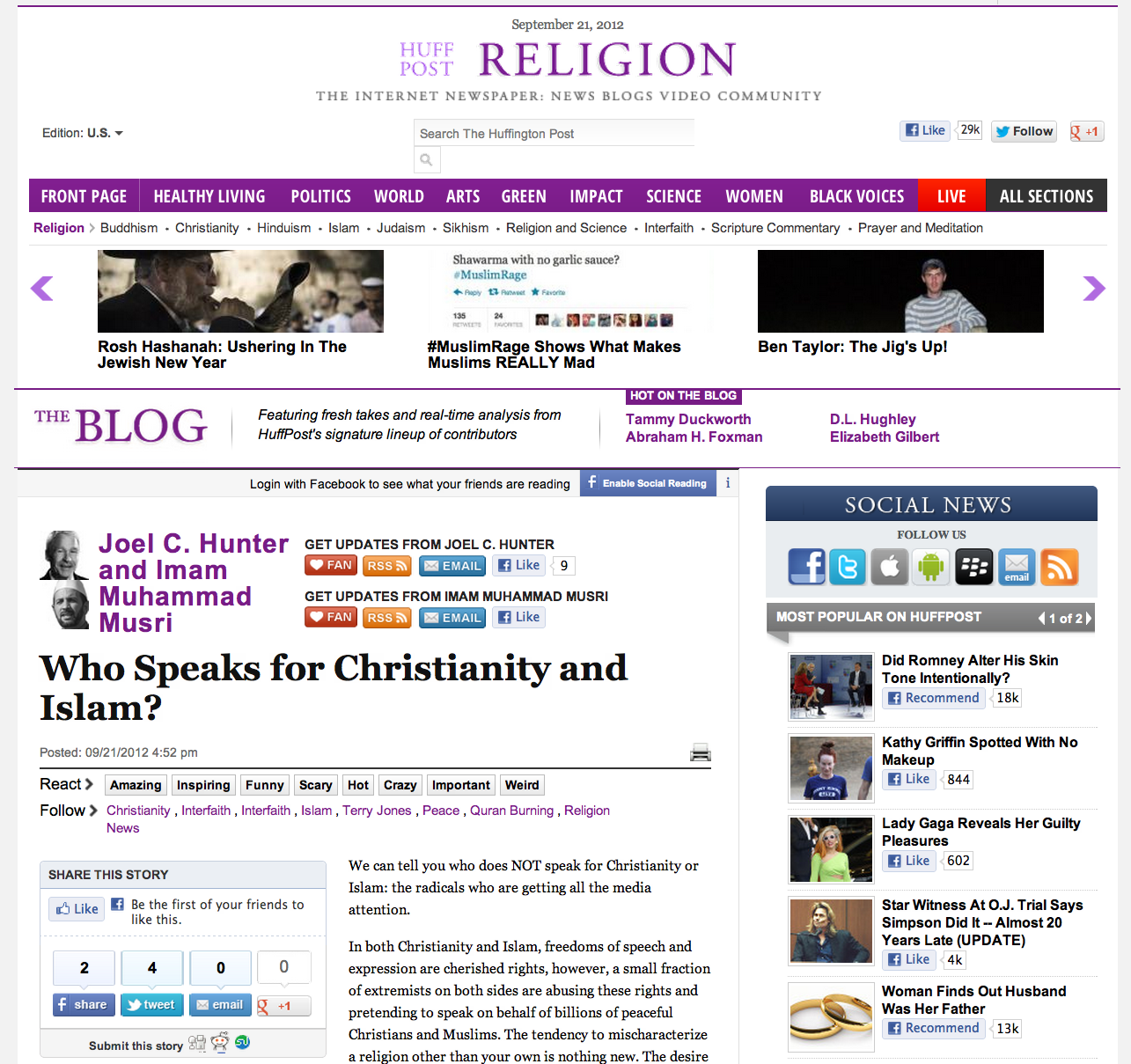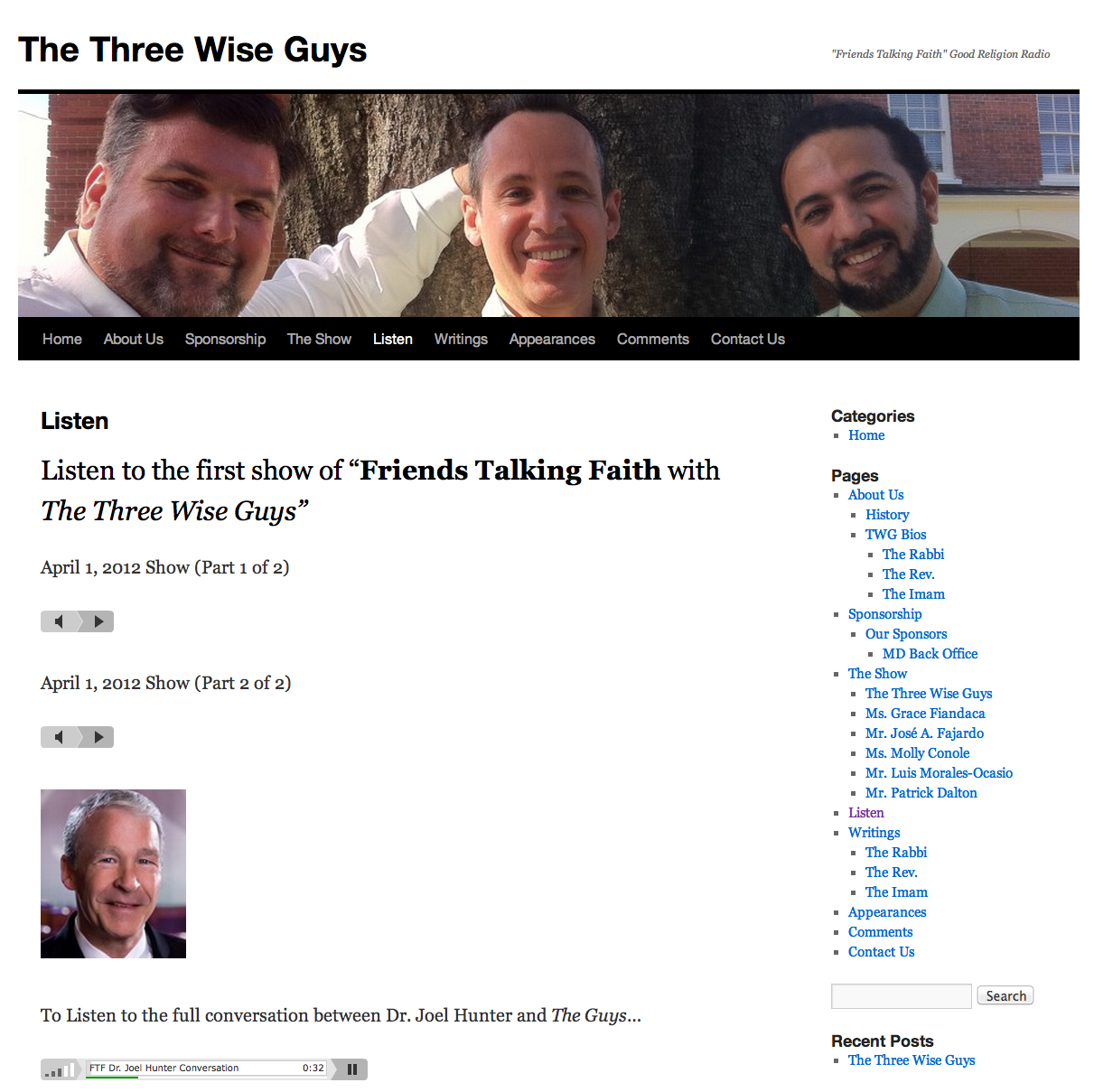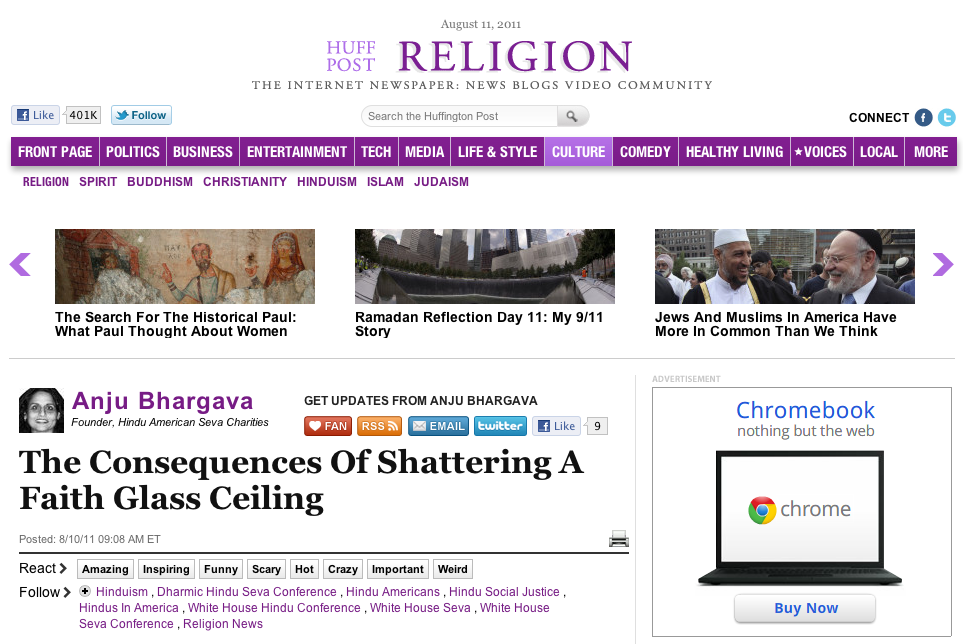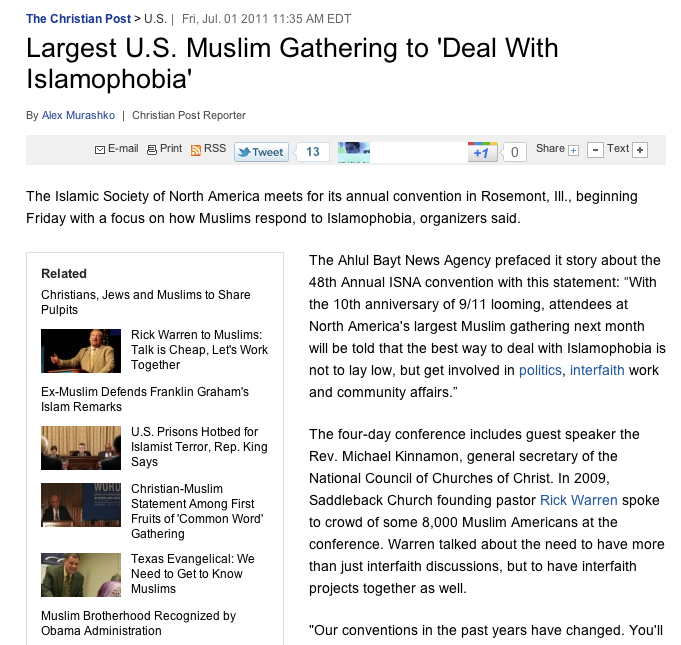Huffington Post: Who Speaks for Christianity and Islam?
By Dr. Joel C. Hunter and Imam Muhammad Musri
We can tell you who does NOT speak for Christianity or Islam: the radicals who are getting all the media attention.
In both Christianity and Islam, freedoms of speech and expression are cherished rights, however, a small fraction of extremists on both sides are abusing these rights and pretending to speak on behalf of billions of peaceful Christians and Muslims. The tendency to mischaracterize a religion other than your own is nothing new. The desire to defend one's faith and respond to insults is certainly understandable. But let us all take a moment to put this in perspective: Who is launching the attacks?
Recently, a demeaning and degrading hate film, produced by a radical Christian in California and promoted by a fundamentalist Christian leader in Florida, resulted in radical Muslims rioting in several countries. The Christian extremists intended to outrage Muslims worldwide, and to get the Muslim extremists to respond violently. They blame each other, but they are two faces of the same coin.
We have both been in the office of Rev. Terry Jones, on different occasions, to try to dissuade him from actions that would place Americans, especially those serving in our Armed Forces, in danger. We have failed for a simple reason: He loves the attention and he believes he is fighting evil. His tiny congregation loves the idea that believers like them are the only ones true to Christ and courageous enough to defend the faith against enemies. Like other fundamentalists of any faith, he speaks with disdain when talking about other churches let alone Islam. When we visited him, instead of carrying a Bible around the office, Rev. Jones and his assistant pastor carried guns.
We do not know any respected Christian leader or denomination who would promote or even tolerate a despicable video denigrating the leader of another religion. Out of the billions of Christians on this earth, only a very few would approve of such slander. The question is, how many will speak out against it?
We both have talked to Muslims, encouraging them to peace and dialogue. Compared to the of the millions that demonstrated for more democratic reforms in the "Arab Spring" movement across the Middle East, how many have been involved in these violent reactions to the film? Only thousands, in some cases hundreds, demonstrated angrily and only a fraction of those were violent.
Everyone likes to blame the media for focusing on the loud voices of the radicals, but some of the responsibility must rest on the majority of religious leaders who are silent during these times, the ones who would speak up for peace and respect of others but they do not take the initiative. Maybe if more of us spoke up, we could drown out the radical provocations and the radical responses with voices of reason, civility and thoughtfulness.
As a Christian leader, I, Pastor Joel Hunter, rebuke the Coptic Christian who made such a disgusting video. I know many Coptic Christians in Egypt and other countries who would be sick about this kind of attack on the Prophet of Islam. I will be part of the voices that will drown out future attempts to incite the clash of religions and civilizations.
As a Muslim leader, I, Imam Muhammad Musri, strongly condemn the cowardly criminal attacks against the U.S. Consulate in Benghazi, Libya, and other U.S. Embassies around the world. My prayers and condolences go out to the families and loved ones of Ambassador Christopher Stevens and his colleagues, who were killed in these senseless criminal acts. I strongly condemn the radical mob that carried out the attacks, and I stand up with the vast majority of Muslims who are peaceful against the extremists who keep trying to hijack our faith. Islam is peace, and under no circumstances is any kind of violence ever justified in response to such provocations.
While many religious leaders find it difficult to reach out across the religious divide, we are proud to say we have been best friends for nearly 20 years. We have advocated for many issues of compassion and justice and health together. We have worked together to reduce nuclear arms, pollution, eliminate torture, minimize poverty and other important issues. How many will stand with us to speak out and outlast the voices of degradation when it comes to other religions? We are each strong advocates for our own scriptures and understandings of God, but we do not build our communities by tearing others down.






